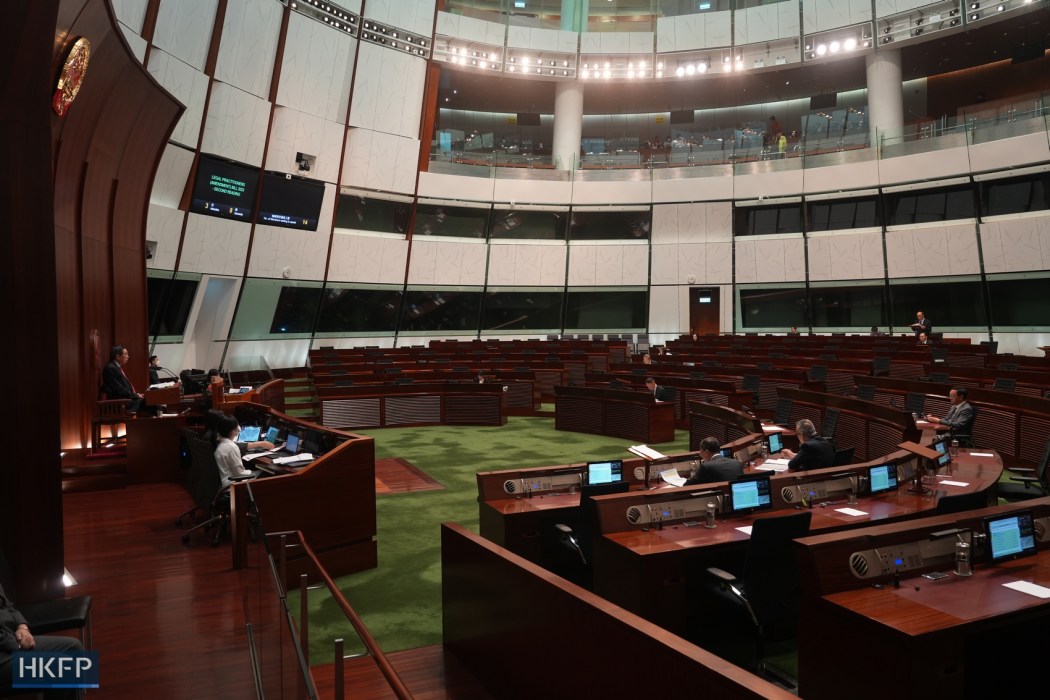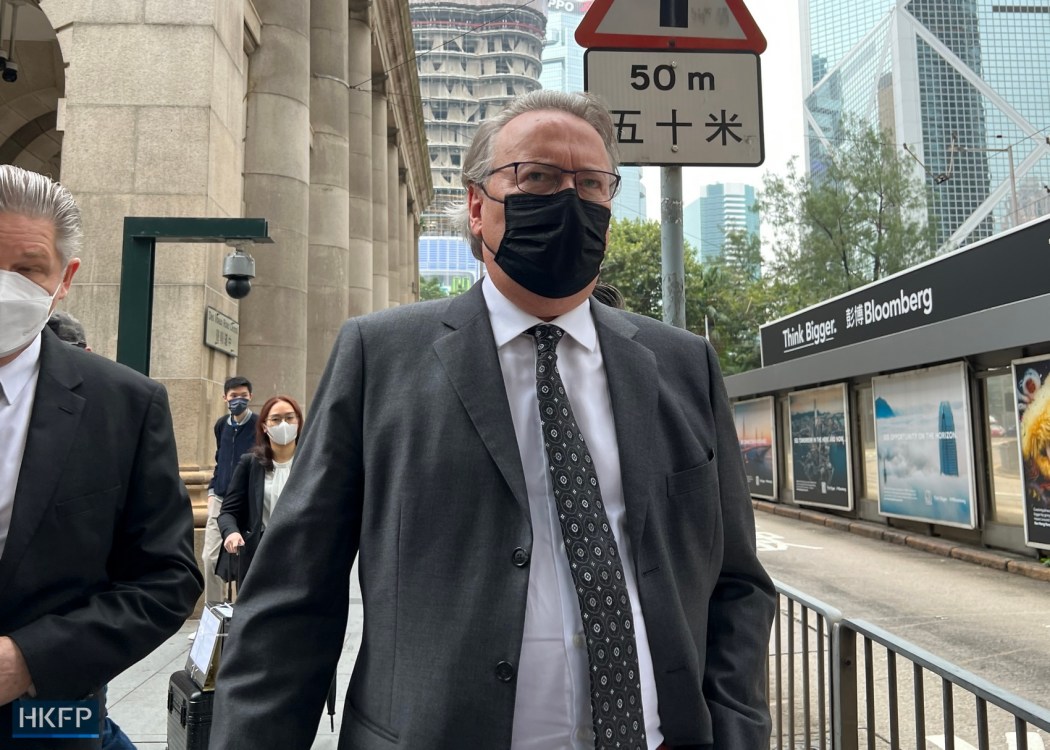Hong Kong’s legislature unanimously passed a bill on Wednesday which essentially allows the chief executive to decide whether overseas counsel can take part in the city’s national security cases.
The Legislative Council (LegCo) passed the Legal Practitioners (Amendment) Bill 2023 on Wednesday with no opposing votes.

The decision means that any overseas counsel not qualified to practice in Hong Kong will have to go through two hurdles before they can participate in national security cases in the city.
Foreign lawyers will first have to inform – and receive permission from – the chief executive before they can apply to be admitted for such cases.
Hong Kong courts will then have to request a certification from the chief executive as to whether the participation of the lawyer in question would involve, or harm, national security.
Courts will only then be able to grant an application to admit an overseas lawyer, if the city’s leader agrees that there would be no issues regarding national security. The chief executive’s decision cannot be challenged in court, according to the newly-passed bill.
Jimmy Lai’s UK lawyer
The administration raised the proposal after four consecutive failed attempt to bar pro-democracy media tycoon Jimmy Lai from hiring a foreign barrister to represent him in a national security trial.

Lai, who founded the now-defunct pro-democracy tabloid Apple Daily, is charged under the security legislation and the colonial-era sedition law. His trial had since been adjourned to September this year.
The Court of First Instance approved an ad hoc admission application from King’s Counsel Timothy Owen in October last year for Lai’s case, despite objections from the government and the Bar Council.
The Court of Appeal and Court of Final Appeal ruled against the government’s three subsequent attempts to appeal the High Court decision last November. Following the top court defeat, Chief Executive John Lee invited Beijing to intervene.
The Standing Committee of the National People’s Congress (NPCSC) then passed a legislative interpretation on the sweeping security legislation last December.
The interpretation stipulated that Hong Kong courts have to request a chief executive certification on the matter, and the city’s national security committee will have to step in if courts fail to do so.
Following the NPCSC decision, Gregory May, US consul general to Hong Kong and Macau, criticised the interpretation and said it “could further undermine the independence of Hong Kong’s judiciary system.”
The Department of Justice said previously that the amendment will not be applied retroactively. However, the bill also allowed the court – or the secretary for justice – to seek chief executive certification if new circumstances arose in a national security case after the admission of an overseas counsel.
‘Not a blanket ban’
The city’s two lawyers’ groups regulating Hong Kong’s barristers and solicitors, the Bar Association and Law Society, said previously that they opposed a blanket ban on overseas counsel.

Lawmakers supporting the bill said on Wednesday that the amendment was “not a blanket prohibition.”
Eunice Yung from the New People’s Party said that the amendment will not harm the defendant’s right to a legal representative or right to a fair trial.
Pro-Beijing Legislative Councillor Priscilla Leung said that the amendment showed that the city was “very tolerant,” and that One Country, Two Systems was a “very lenient” mechanism.
“I understand why we did not impose a blanket ban,” said Leung.
“Because foreign countries have been watching and smearing every thing we do, this time [the amendment] is very lenient and did not exclude [foreign counsel], that’s why I think we must promote this amendment positively, especially to foreign friends and the legal sector.”
Support HKFP | Policies & Ethics | Error/typo? | Contact Us | Newsletter | Transparency & Annual Report | Apps
Help safeguard press freedom & keep HKFP free for all readers by supporting our team
























